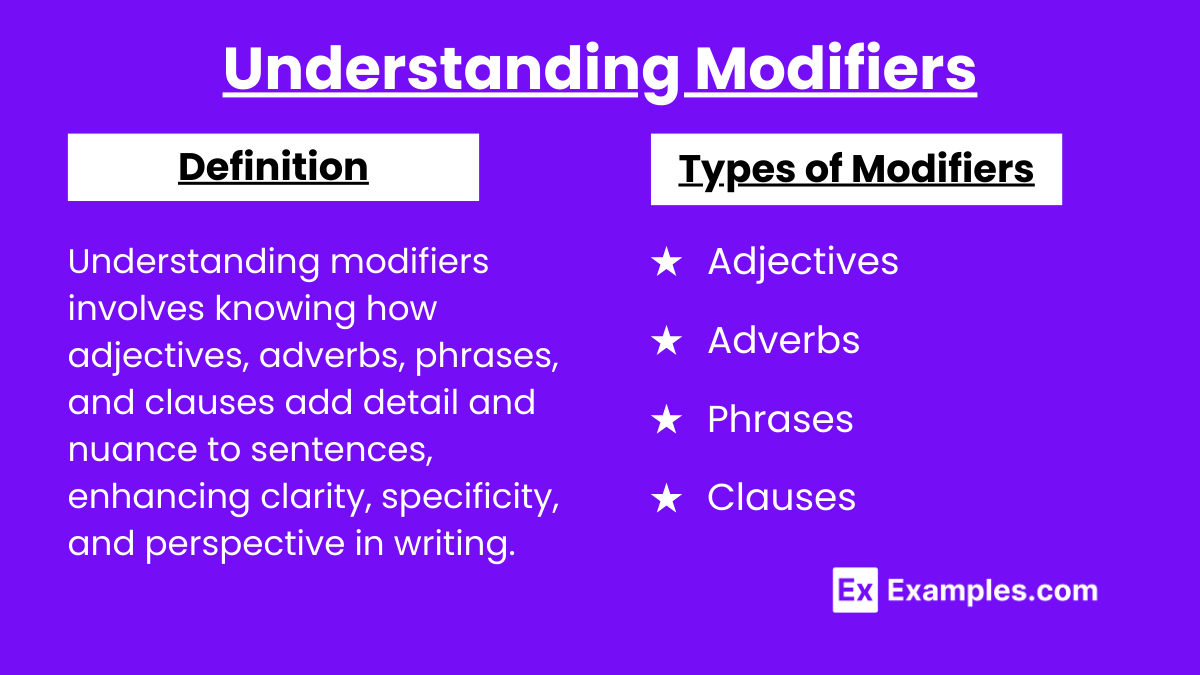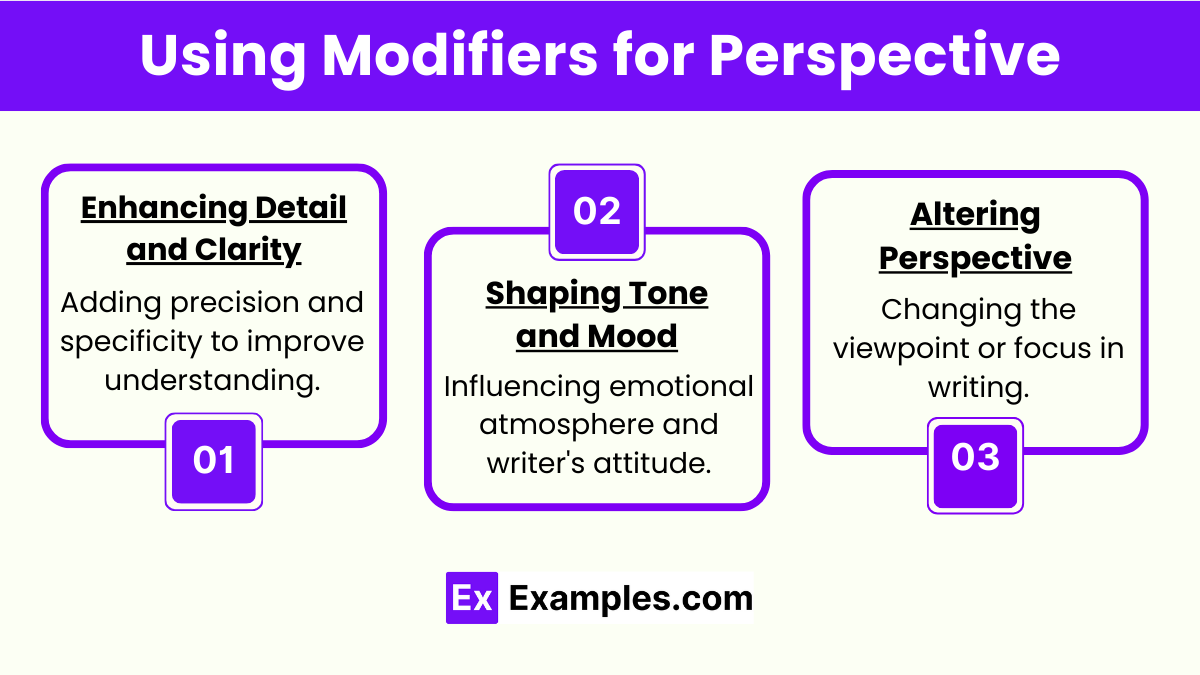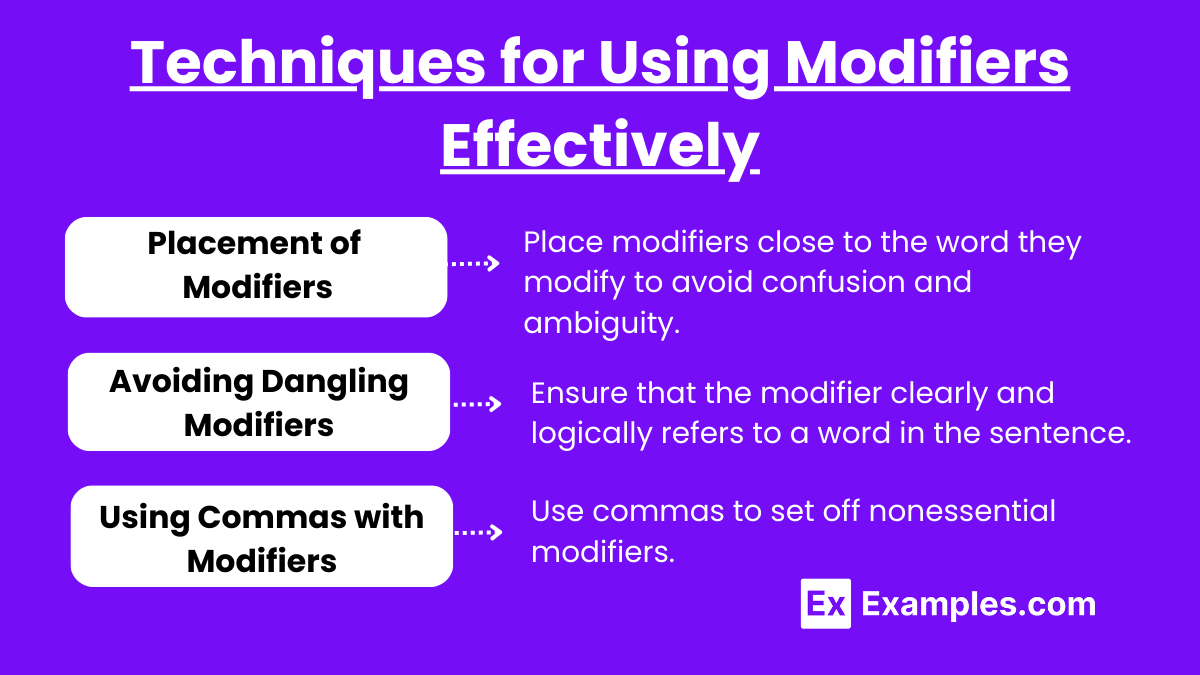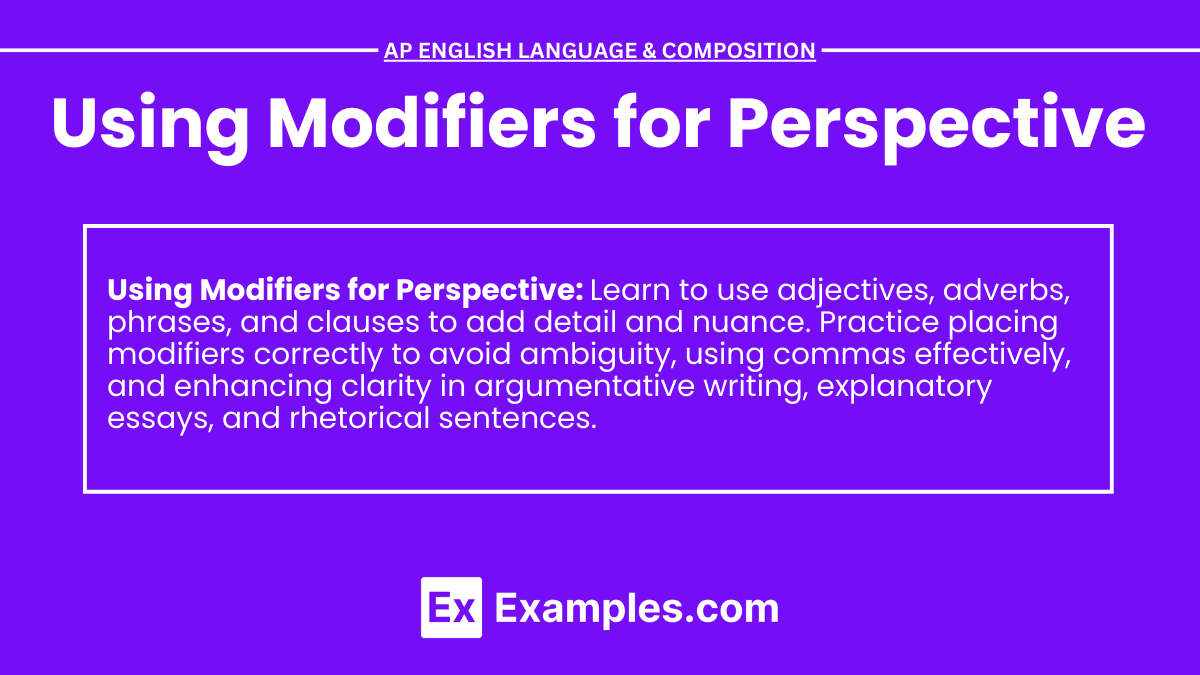In the AP English Language and Composition exam, mastering the use of modifiers is crucial for enhancing the clarity and precision of your writing. Modifiers, which include adjectives, adverbs, phrases, and clauses, allow writers to add detail and nuance, shaping the perspective and tone of their work. Whether crafting rhetorical sentences, cumulative sentences, or engaging in argumentative writing and argumentative speech, effective use of modifiers can significantly improve the expressiveness and impact of your arguments. Understanding how to employ these elements skillfully ensures your writing is both sophisticated and compelling, helping you to convey complex ideas with precision and flair.
Learning Objectives
By studying the use of modifiers for perspective, students will achieve several key learning objectives. They will learn to enhance their argumentative writing and argumentative speeches by using precise modifiers to clarify and strengthen their arguments. Students will develop skills to create detailed and engaging explanatory essays and expository essays using well-placed modifiers. They will understand how to craft effective rhetorical sentences that add depth and nuance to their writing. Additionally, students will learn to refine their final thesis statement with appropriate modifiers, ensuring it is clear, specific, and compelling. Mastery of these techniques will enable students to produce sophisticated, nuanced, and persuasive writing.
Understanding Modifiers

Definition
Modifiers are words, phrases, or clauses that provide description in sentences. They can add details about how, when, where, why, or to what extent something happens.
Types of Modifiers
- Adjectives: Describe nouns or pronouns (e.g., “bright,” “quick”).
- Adverbs: Describe verbs, adjectives, or other adverbs (e.g., “quickly,” “very”).
- Phrases: Groups of words that act as a single modifier (e.g., “running quickly,” “in the dark”).
- Clauses: Groups of words with a subject and a verb that act as a single modifier (e.g., “who was running quickly,” “because it was dark”).
Using Modifiers for Perspective

Enhancing Detail and Clarity
Modifiers can clarify the specifics of a sentence, providing precise details about the action, setting, or characteristics involved. This helps the reader form a clear mental image and understand the nuances of the situation.
Shaping Tone and Mood
Modifiers contribute significantly to the tone and mood of a piece of writing. Carefully chosen adjectives and adverbs can evoke particular emotions and set the atmosphere.
Altering Perspective
By choosing specific modifiers, writers can subtly shift the perspective or focus of a sentence. This can highlight certain aspects over others, influencing how the reader perceives the information.
Examples
Example 1: Adjectives
- Without Modifiers: “The cat sat on the mat.”
- With Modifiers: “The fluffy white cat sat on the old, worn mat.”
Example 2: Adverbs
- Without Modifiers: “She sings.”
- With Modifiers: “She sings beautifully.”
Example 3: Phrases
- Without Modifiers: “The man walked.”
- With Modifiers: “The man walked with a heavy heart.”
Example 4: Clauses
- Without Modifiers: “The teacher read the book.”
- With Modifiers: “The teacher, who was enthusiastic about literature, read the book.”
Techniques for Using Modifiers Effectively

Placement of Modifiers
- Place modifiers close to the word they modify to avoid confusion and ambiguity.
- Example: “She almost drove her kids to school every day.” (incorrect)
- Correct: “She drove her kids to school almost every day.”
Avoiding Dangling Modifiers
- Ensure that the modifier clearly and logically refers to a word in the sentence.
- Example: “Walking to the store, the rain started pouring.” (dangling)
- Correct: “Walking to the store, I got caught in the pouring rain.”
Using Commas with Modifiers
- Use commas to set off nonessential modifiers.
- Example: “My brother, who lives in New York, is visiting us.”


